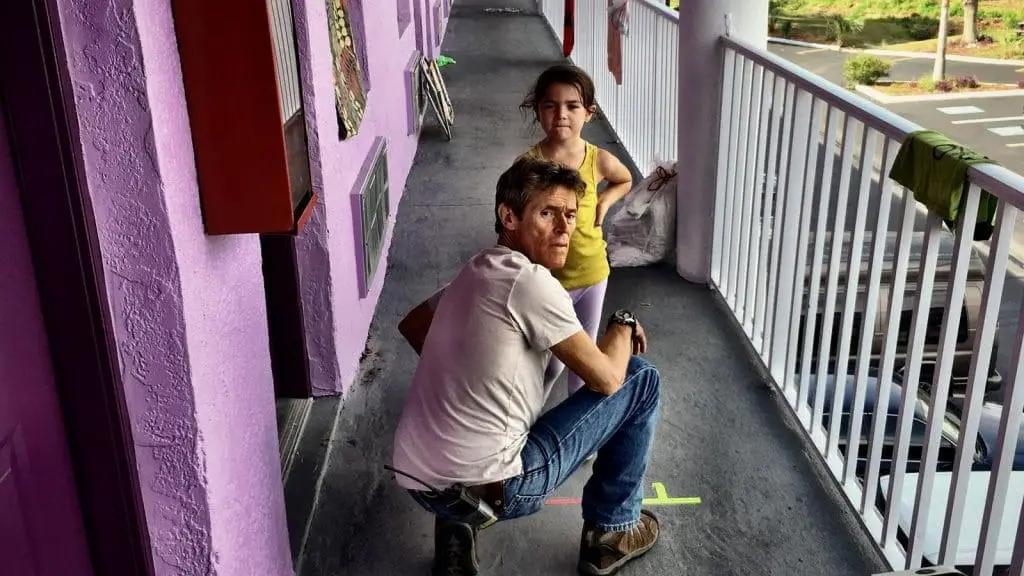
BOOTLEG FILES 514: “Modesta” (award-winning 1956 short drama from Puerto Rico).
LAST SEEN: The film is on YouTube.
AMERICAN HOME VIDEO: None.
REASON FOR BOOTLEG STATUS: One of the most obscure films on the National Film Registry.
CHANCES OF SEEING A COMMERCIAL DVD RELEASE: It would be nice.
Every year, the Library of Congress announces the addition of 25 motion pictures to the National Film Registry. The selection of films is determined by the Librarian of Congress, who gets to highlight films that he considers to be “culturally, historically or aesthetically” significant. The annual selection is always a weird mix of well-known classics and little-known flicks that are often chosen to reflect the cinematic portrayal of racial and ethnic diversity and female empowerment. (Though, as an aside, the Librarian of Congress prefers not to include LGBT-oriented films on the registry – “The Times of Harvey Milk” is, to date, the sole gay-focused film in the registry.)
In 1998, the slate of National Film Registry titles consisted of some very familiar works – including “Bride of Frankenstein,” “Easy Rider” and “Steamboat Willie” – but there was also a work that created more than a few puzzled expressions over its inclusion, if only because it was almost completely unknown in the U.S. That film was “Modesta,” and it marked the first time that a Puerto Rican production was considered to be a “culturally, historically or aesthetically” significant part of the U.S. film experience.
“Modesta” was one of many works generated by Puerto Rico’s Division de Educacion de la Comunidad (DivEdCo), an educational agency created in 1949 by Gov. Luis Munoz Marin to strengthen the island’s cultural identity. While DivEdCo produced radio shows, sponsored lectures and published books and pamphlets, its film production – consisting of 65 shorts and two features produced between 1950 and 1975 – created a considerable impact.
DivEdCo’s mission sought to define a modernized Puerto Rican society that embraced the full tenets of democracy, especially the participation of women in determining a community’s course of action. This was not an easy task – during a 1955 meeting organized by DivEdCo in a rural village, a woman who attempted to share her opinions was angrily told to shut up by a male neighbor who was outraged at her attempt to speak her mind. The tradition of excessive male dominance, especially in rural regions, was seen as a stumbling block for Muniz Marin’s goals of building united communities.
To achieve this goal, DivEdCo’s film unit sought to make a dramatic short from a story by Domingo Silas Ortiz on a rural woman’s revolt against her abusive husband. Benjamin Doniger, a New York-born cinematographer who settled in Puerto Rico, was tapped to direct this effort, and the cast was recruited from nonprofessionals living in the rural villages outside of Guaynabo.
“Modesta” opens with a montage of life in an unidentified Puerto Rican village. It is a somewhat misogynistic location, with all of the village’s husbands ordering their wives about to complete domestic chores. Modern conveniences are nowhere in sight, as the women wash their clothing in a stream and carry containers of water back to residences that lack plumbing.
The title character is a wife with three small children, including an infant; her pregnant stomach suggests that a fourth offspring will be arriving shortly. The viewer finds Modesta dreaming of domestic turmoil, complete with dishes being broken and food boiling over on the stove. She also recalls her wedding, when her happy groom seemed to promise a wide world of happiness.
Alas, Modesta’s husband has no interest in helping her with the children or with feeding the chickens that scratch about outside their shabby shack. Instead, he dresses himself up and joins the other local men at a c**k fight arena, where, he bets money on the fighting fowls.
At day’s end, Modesta is going through her dreary tasks of cooking dinner when her husband arrives home with several of his friends. After years of domestic servitude, the poor woman finally has enough. She grabs a large stick and whacks her husband over his head, causing him and his pals to flee. Word of her action spreads through the village, and soon the other women come to idolize Modesta. Emboldened by her action, she urges the women to create a “League of Liberated Women” and agitate for an end to the misogynist machismo that divided the genders. “Now that we have taken our first step towards our emancipation, we must, become vigilant to defend our rights,” Modesta proclaims.” Therefore, we must join efforts for this to be so.” The women confront the men, who reluctantly (but ultimately) accept the idea of gender equality.
In terms of film technique, “Modesta” is a somewhat peculiar production. There are long stretches without dialogue – perhaps to spare the nonprofessional cast from having to recite from a script – and Modesta’s abrupt transformation from lethargic near-slave to peppy uber-feminist comes out of nowhere. The men’s equally abrupt capitulation is also done with nary any pushback, which is a bit too fantastic to absorb.
Still, “Modesta” deserves praise for bluntly advocating women’s rights. Considering that Hollywood fare of the same era was considerably less than enlightened in its portrayal of working class women, this little Puerto Rican film seems progressive in demanding full equality for the female population. And its message resonated beyond the Caribbean. “Modesta” was shown at the Venice Film Festival and the Edinburgh Film Festival, winning prizes at both events. Within Puerto Rico, the film is considered one of the classic works of the DivEdCo era.
I don’t know if “Modesta” was ever shown in U.S. theaters, though maybe it played in cinemas catering to Spanish-language communities. Despite its presence on the National Film Registry, “Modesta” has never been available for U.S. home entertainment release. The full 35-minute production is on YouTube, but without English subtitles; this posting appears to have come from a heavily duped print copied off a VHS video, complete with tracking lines and a blue blur that occasionally appears on the left side of the screen. Since DivEdCo was a government agency, I assume the film is in the public domain, which makes it too easy for anyone to dupe.
Part of the mission of the National Film Registry is to preserve the productions being honored. Hopefully, the Library of Congress can find funding to restore “Modesta” and make it available for all Americans to see. After all, what good is honoring a movie if no one ever heard of it or ever saw it?
IMPORTANT NOTICE: The unauthorized duplication and distribution of copyright-protected material, either for crass commercial purposes or profit-free s***s and giggles, is not something that the entertainment industry appreciates. On occasion, law enforcement personnel boost their arrest quotas by collaring cheery cinephiles engaged in such activities. So if you are going to copy and distribute bootleg material, a word to the wise: don’t get caught. Oddly, the purchase and ownership of bootleg DVDs is perfectly legal. Go figure!


Jett – the current Librarian of Congress, the head of the Library of Congress, is Dr. James H. Billington. He has held the position for more than 26 years. Though technically a historian by training and trade, he has the title of Librarian.
When a women is appointed and confirmed to the position, she will make the final selections for the film and sound preservation registries and a number of other projects and positions at the Library. Many issue experts, librarians and historians, inform and advise the Librarian regarding these decisions.
“The selection of films is determined by the Librarian of Congress, who gets to highlight films that he considers to be “culturally, historically or aesthetically significant”.
Really???? HE!?!?!?! So only male members of LOC are capable of determining what is “culturally significant.” >:-<